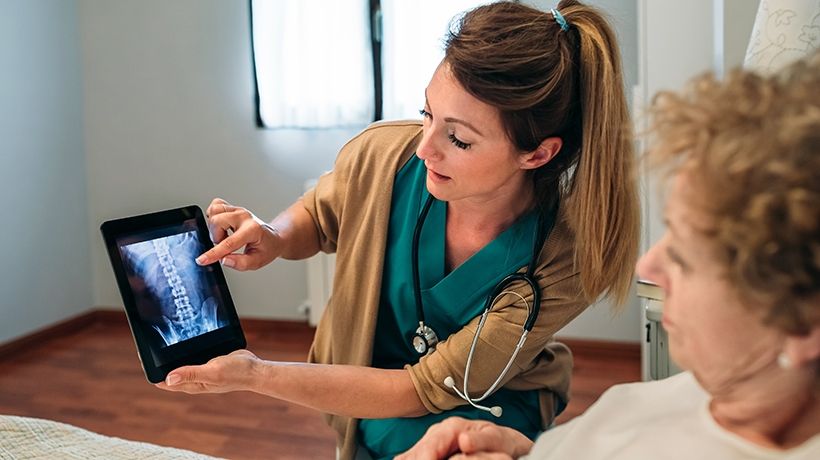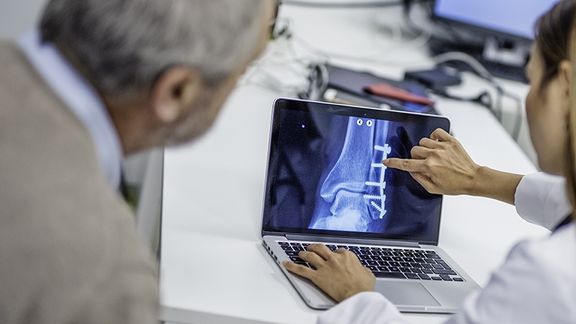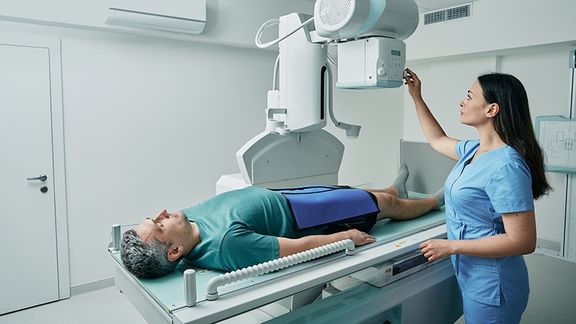A bone mineral density (BMD) test is a highly accurate method for assessing bone health and diagnosing osteoporosis early. By measuring bone density, it can:
- Detect osteoporosis in its early stages, allowing for timely treatment.
- Monitor bone loss over time.
- Track your response to osteoporosis treatment.
Unlike traditional X‑rays, which can only detect existing spine fractures, a BMD test uses specialized techniques. The most common method is a DXA (dual-energy X‑ray absorptiometry) scan. This low-radiation scan measures bone tissue density to determine the impact of osteoporosis and assess the risk of future fractures.



